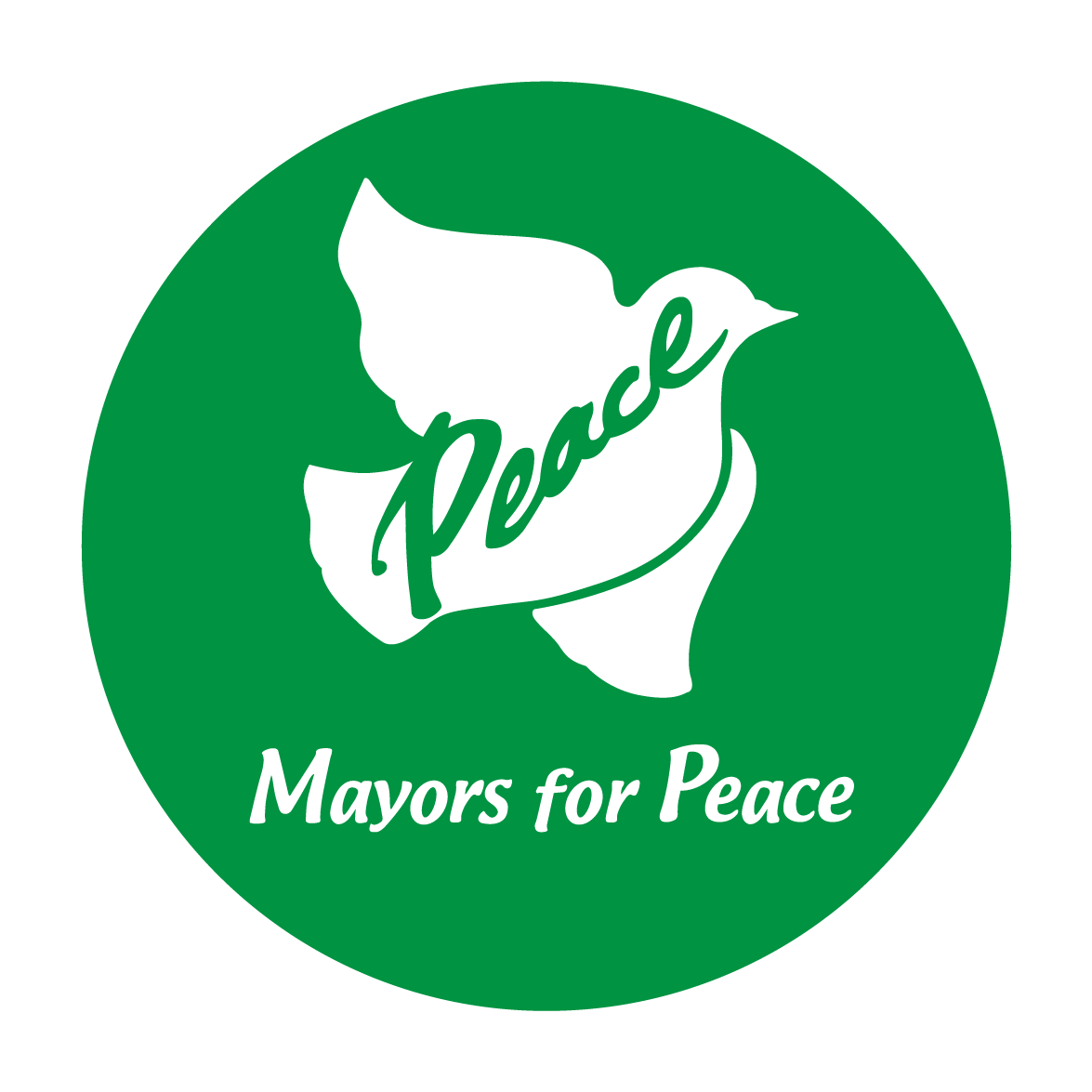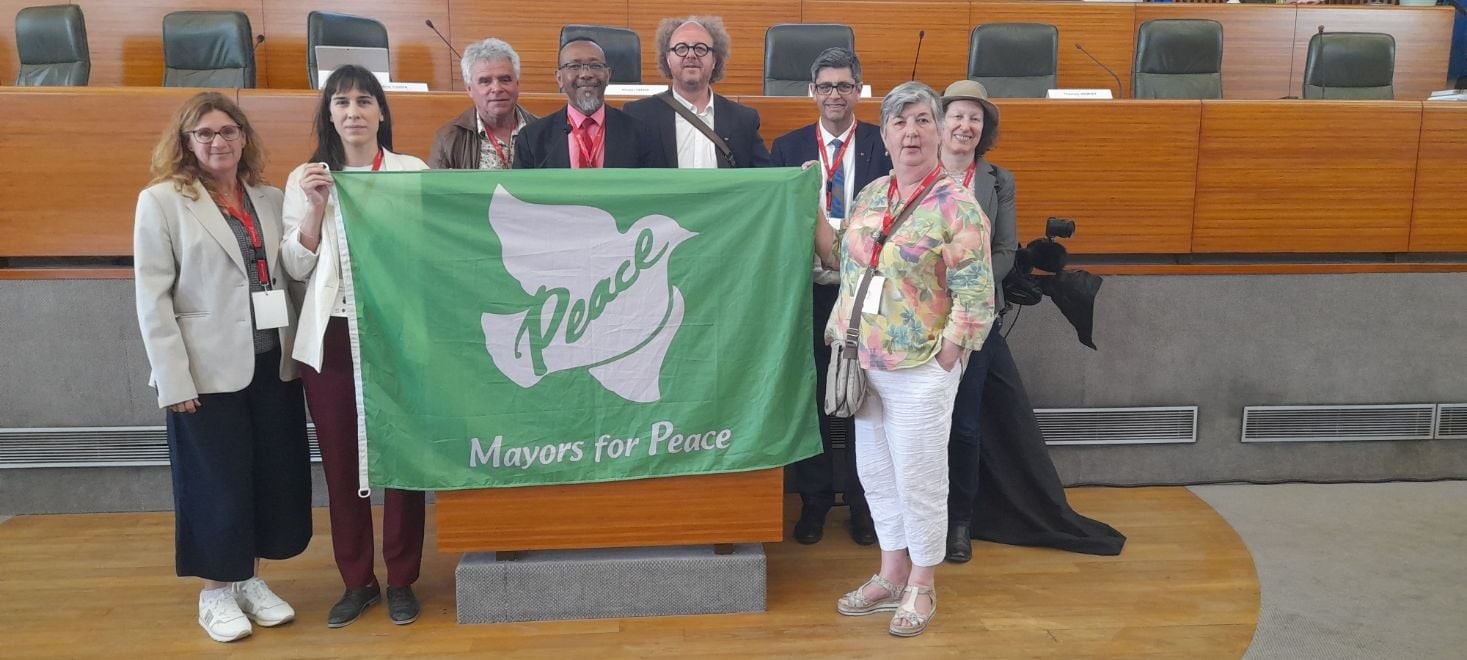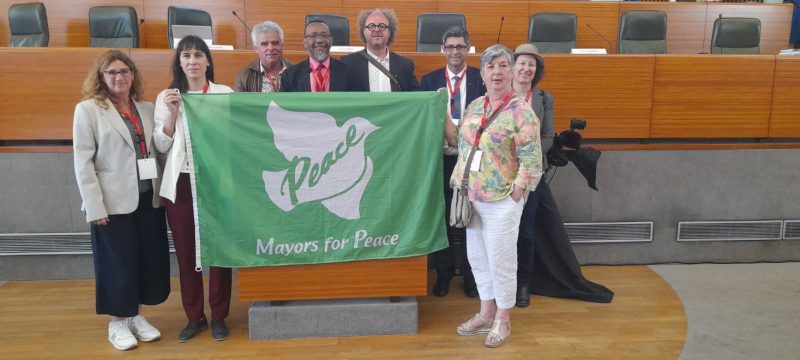Report by Ms. Lorena Schlicht, Mayors for Peace France (AFCDRP)
On June 10, 2024, the Mayors for Peace delegation, consisting of representatives from France, Catalonia, and Belgium, gathered to commemorate the 80th anniversary of the Oradour-sur-Glane massacre, which claimed the lives of 643 people. This solemn event was honored by the presence of the French and German presidents, as well as delegations from foreign cities, French ministers, elected officials, institutional representatives, associations, and families of the victims. This poignant moment served as a strong reminder of these tragic events and the importance of preserving their memory.
As part of the commemorations, on June 11 at the Regional Council headquarters in Limoges, the Mayors for Peace delegations participated in the 5th Conference of Cities of Remembrance, initiated by Dunkirk in 2016. The conference brought together members from different parts of the world.
Discussions focused on: “Transmitting Memory: Why and How to Remember,” featuring a video testimony from hibakusha Ms. Toshiko Tanaka, presented by Peace Boat; “Memorial Sites in Europe: Assessment and Perspectives”; “Memory Tourism in the Digital Age: From Pilgrimage to Consumption”; the proclamation of the Cities of Remembrance Manifesto; and the Youth Manifesto, highlighted by the project “Youth Storming for Peace” involving ten young participants from Bucha. Before the video of Toshiko Tanaka, Fatiha Alaudat, Deputy Municipal Councilor for Peace Culture in Malakoff and representative of Mayors for Peace France, underscored the historical commitment of mayors from the two martyr cities to peace. She highlighted the crucial role of hibakusha as “the last living witnesses of the atomic bombings on Hiroshima and Nagasaki,” emphasizing the strength and uniqueness of their testimonies that “powerfully express the inhumanity of these weapons of mass destruction, while delivering a message of hope and peace,” aiming “to prevent humanity from reliving the terrible suffering caused by their use.”
She stressed the need to integrate memory and peace culture into public policies: “listening to survivors, preserving memorial sites, participating in commemorative events, developing educational programs, organizing artistic, cultural, and sports events, sharing our ideas and experiences marks our commitment to a culture of peace locally and globally, to usher in a sustainable and peaceful world…”
She did not fail to connect with current events worldwide and in Europe: “In these times of reflection and commemoration, it is impossible not to think of all those today still enduring the tragedy of war in Ukraine, Yemen, Syria, or Palestine. The repeated threats of the use of nuclear weapon remind us of the importance and urgency of permanently banning these weapons of mass destruction, as demanded by hibakusha and the global network of Mayors for Peace. Faced with violence, the rise of extremism, intolerance, isolationism, and hatred of the other, it is imperative that we collectively act to prevent such situations and protect the fundamental rights of everyone.”
Photos: courtesy of AFCDRP–Mayors for Peace France


